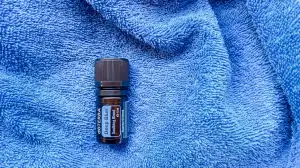Unveiling the Truth: Are Quest Chips Truly Healthy? | Health Section

Quest Nutrition is a well-known brand that has gained popularity for its range of protein-packed snacks, including Quest chips. These chips are marketed as a healthier alternative to traditional potato chips, appealing to health-conscious consumers looking for a guilt-free snack option. With various flavors and a focus on high protein and low carbs, Quest chips have garnered attention in the market as a convenient and satisfying snack choice. In this article, we delve into the nutritional content and ingredients of Quest chips to uncover the truth behind their health claims.
Nutritional Information:
Quest chips are known for their impressive nutritional profile. A typical serving of Quest protein chips (about 32g) contains approximately 140 calories, 5g of fat, 5g of carbohydrates (2g of which are fiber), and a remarkable 18-20g of protein. These numbers make Quest chips a favorable choice for those looking to increase their protein intake while keeping calories and carbs in check. Additionally, the high fiber content contributes to satiety and digestive health.
Ingredients Analysis:
Quest chips are known for their focus on using high-quality ingredients. The primary components include protein isolate blends, such as whey and milk protein isolates, which contribute to the chips' protein content. Additionally, Quest chips contain fiber sources like soluble corn fiber and inulin, aiding in digestion and promoting satiety. Sunflower oil is used for frying, providing a source of healthy fats. However, some flavors may contain artificial flavors or sweeteners like sucralose. Overall, Quest chips prioritize protein and fiber-rich ingredients while minimizing added sugars and unhealthy fats.
Comparison with Traditional Chips:
When comparing Quest chips to traditional potato chips, the nutritional differences are stark. Quest chips typically have fewer calories, less fat, and more protein and fiber per serving than traditional chips. For example, a serving of Quest protein chips contains around 120 calories, 2-3 grams of fat, 21 grams of protein, and 5-6 grams of fiber. In contrast, a standard serving of regular potato chips can have over 150 calories, 10 grams of fat or more, minimal protein, and little to no fiber. This significant variance in nutritional content highlights the potential health benefits of choosing Quest chips over traditional options for those looking to make healthier snack choices.
Health Benefits:
Quest chips are known for their high protein content, which can help promote feelings of fullness and support muscle growth and repair. Additionally, the fiber in Quest chips can aid in digestion and help regulate blood sugar levels. The lower carbohydrate content compared to traditional chips may also be beneficial for those following a low-carb diet or managing blood sugar. These factors combined make Quest chips a potentially healthier snack option for individuals looking to satisfy cravings while maintaining a balanced diet.
Potential Drawbacks:
While Quest chips offer a healthier alternative to traditional potato chips with their higher protein and fiber content, they do have some potential drawbacks. One concern is the high sodium content in Quest chips, which can contribute to issues like high blood pressure if consumed in excess. Additionally, some flavors of Quest chips may contain artificial ingredients or sweeteners, which could be a drawback for individuals looking to avoid these additives in their diet. It's important to consume Quest chips in moderation and be mindful of overall sodium intake and ingredient quality when incorporating them into a balanced diet.
Expert Opinions:
Registered dietitian and nutrition expert, Sarah Johnson, emphasizes that Quest chips can be a healthier alternative to traditional potato chips due to their higher protein content and lower carbohydrates. She suggests that incorporating Quest chips in moderation as part of a balanced diet can be beneficial for individuals looking to increase their protein intake while satisfying cravings for crunchy snacks. However, she advises consumers to be mindful of portion sizes and overall calorie intake when including Quest chips in their daily food choices.
In conclusion, Quest chips offer a healthier alternative to traditional potato chips due to their lower calorie and higher protein content. While they may not be as low in fat as some other snack options, the protein and fiber content can help promote satiety and potentially aid in weight management. Despite some concerns over certain ingredients like soluble corn fiber, overall, Quest chips can be enjoyed in moderation as part of a balanced diet. For those looking for a satisfying snack without compromising too much on health, Quest chips could be a suitable choice.
Published: 02. 05. 2024
Category: Health



